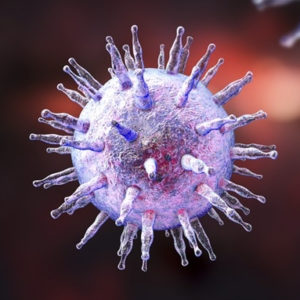Doctors’ Notes
BackMononucleosis
…or “Mono,” as it’s more commonly known. Mono is a viral infection caused by the Epstein-Barr virus (EBV). It most commonly affects teenagers and young adults.
 Famously known as the “kissing disease,” Mono is transmitted through contact with the saliva of an infected individual. This means you can get the virus not only by kissing, but also by sharing straws, cups, utensils, or a toothbrush with someone sick with Mono.
Famously known as the “kissing disease,” Mono is transmitted through contact with the saliva of an infected individual. This means you can get the virus not only by kissing, but also by sharing straws, cups, utensils, or a toothbrush with someone sick with Mono.
Signs & Symptoms
You may not know that most infants and young children who get Mono do not develop any symptoms! Symptoms tend to be more common among teenagers and young adults who get infected with Mono for the first time.
It can take up to 1-2 months after exposure to develop symptoms, which include:
• Fever
• Sore throat
• Fatigue
• Swollen glands in the neck
• Body aches
• Weakness
Mono can also cause the spleen — an organ in the upper left side of your abdomen — to enlarge. An enlarged spleen is at risk of getting ruptured especially while playing sports, which can lead to life-threatening internal bleeding. This is why we generally recommend no sports until a patient cleared by a doctor. If you think you have Mono and start experiencing sudden sharp abdominal pain, call the office immediately.
Most patients start feeling better after 1-2 weeks of symptoms. In some cases, symptoms can linger on for up to 1-2 months (especially fatigue). Most patients recover from Mono without long-term complications.
Diagnosis
The diagnosis is usually confirmed through a blood test. There is no throat swab or nose swab that can diagnose Mono at this time.
It’s important to remember that the blood test may not be accurate until the symptoms have been present for at least 1 week. This is because the test checks for the production of antibodies to the Mono virus, and it may take up to 1-2 weeks for your body to make enough antibodies that can be detected through bloodwork.
Treatment
Since Mono is a viral illness, no antibiotic will help treat the symptoms faster. There is no anti-viral medication that will help treat symptoms faster.
Drink plenty of fluids, and be sure to get rest. Acetaminophen and ibuprofen can help relieve pain and fever. Remedies that may help relieve a sore throat include salt water gargles, herbal tea with honey, cold liquids, and popsicles.
When Can I Go Back to School & Sports?
We recommend staying home and resting until your symptoms start improving, your fatigue is beginning to improve, and you’re fever-free for at least 24 hours.
As mentioned above, Mono can enlarge the spleen, which puts it at a greater risk of rupture from physical contact that can cause life-threatening bleeding. The spleen generally goes back to its normal size as the infection resolves. Therefore, we recommend avoidance of sports (especially contact sports) for at least 3-4 weeks.
This period may be longer depending on the type of sport you play. Please contact our office to discuss when your child should return to their sport.
Dr. Nikita Roy has been a Kids Plus Provider since 2019.